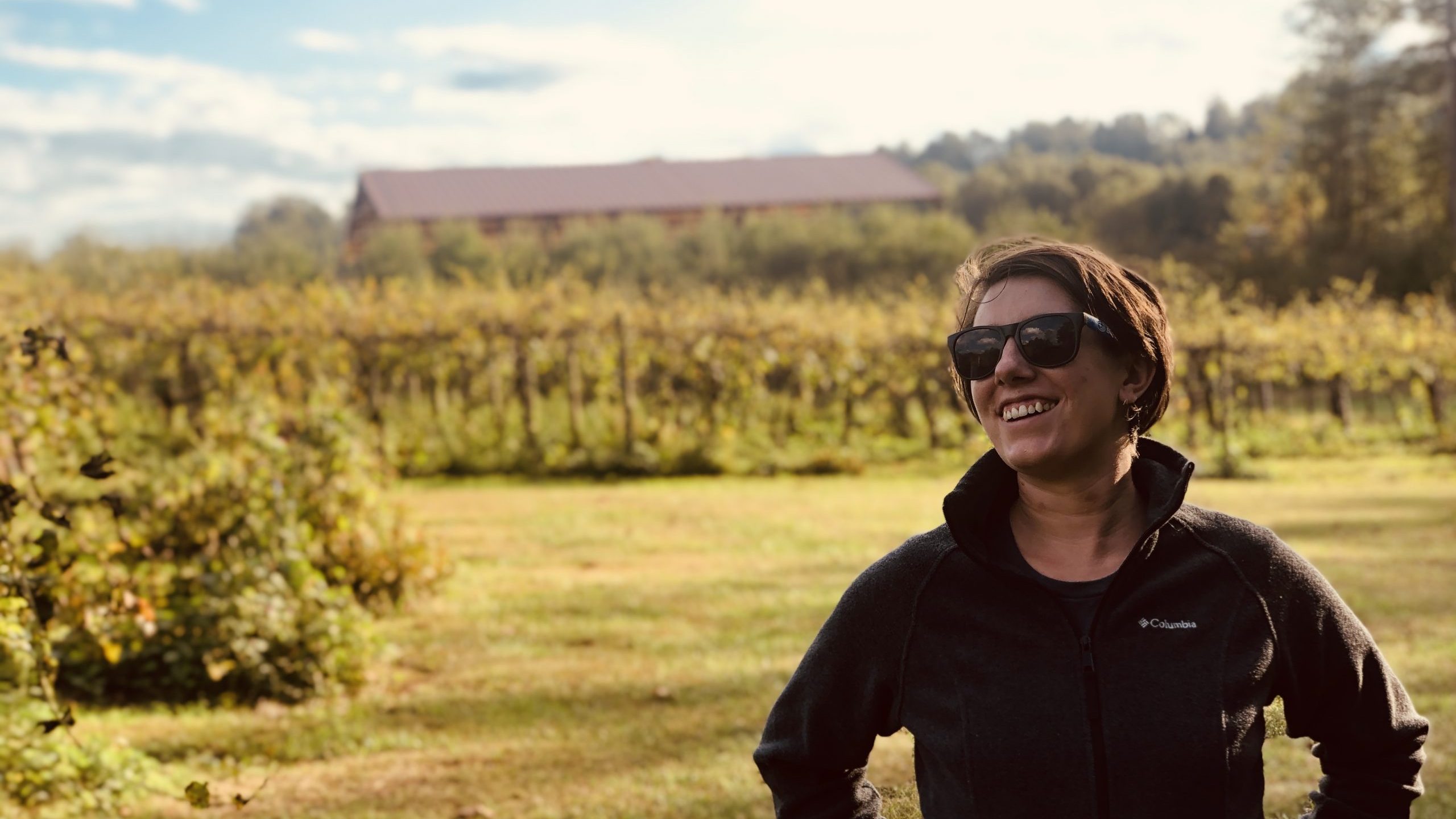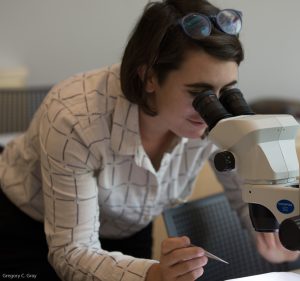Researcher Spotlight – Emily Reed

2019-20 Global Change Fellow
PhD Student, Department of Biological Sciences
Advisor: Dr. Martha Burford Reiskind
Every year the Southeast Climate Adaptation Science Center funds a multi-disciplinary cohort of Global Change Fellows representing colleges across NC State University. Here are some highlights about 2019-20 Fellow, Emily Reed, and the applied research she’s conducting.
About You
What do you study?
I study the effects of urban ecosystems and urbanization on invasive mosquitoes. I use landscape genetics to address my questions, which is a field that combines methods and ideas from landscape ecology, population genetics, and spatial statistics. Essentially, I do “23 and me”-esque analyses with mosquitoes.
What (or who) influenced you to go into this field of study?
I acquired my interest in biology late in my undergraduate career when I had a series of impressive and inspiring professors. My desire to develop GIS and genetics skills led me to my current field of landscape genetics, which was fostered by my advisor Dr. Burford Reiskind.
What is your dream job?
My dream job is to work as a research geneticist or ecologist with a federal agency (e.g. the USGS) or museum.
What do you think is the most pressing issue related to global change?
I think that the interactions between different elements of global change, e.g. invasive species spread, urbanization and land use change, increases in disease prevalence and virulence, sea level rise, etc. is a pressing and understudied area of global change, especially when it comes to their combined effects on vulnerable communities.
About Your Research

What results are you finding?
Urban landscapes are unique, understudied systems that generate novel ecological and evolutionary species’ responses. My results are preliminary, but I am seeing that urban landscape features differentially affect gene flow and migration in invasive mosquitoes. Specifically, open developed green spaces (e.g. parks, golf courses, and large yards) and impervious surfaces seem to influence genetic connectivity.
Who will benefit from your research?
My research benefits many communities and stakeholders. Invasive mosquitoes are vectors for disease, so this project has important implications for public health. It also contributes to control and management of invasive species, which are a top threat to biodiversity, ecosystem health, and certain ecosystem services. Therefore, communities in urban areas and wildlife and land managers could potentially benefit from this work.
How can your research be used to inform management decisions?
Population genetics gives us insight into dispersal and connectivity of species across heterogeneous landscapes. This provides vital information for species conservation and management at local to global scales. Landscape genetics can reveal corridors for movement, hotspots of genetic diversity, and an assessment of the evolutionary potential of populations.
How would you describe your research to a 3rd grader?
I study how invasive mosquitoes move in cities and towns, and how elements in those places, such as buildings, sidewalks, parks, and roads, make it easier or harder for mosquitoes to travel.
About Your Global Change Fellow Experience
How do you expect the SE CASC Global Change Fellows Program to impact you and your work?
The Global Change Fellows Program has had a huge influence on the way I think about my research and potential future career paths. I have a more interdisciplinary view of my work and consider much more carefully the involvement of stakeholders in my research. I also have cultivated an appreciation for decision science and have integrated elements of social science and climate models into my dissertation.
What has been the most rewarding part of being a SE CASC Global Change Fellow?
The most rewarding part of the fellowship has been meeting and working closely with the other Global Change Fellows. We represent a diversity of research topics and interest, and I am constantly learning new things and thinking about my own project in new ways because of the fellows and SECASC staff/faculty.
What advice would you give to a student that is interested in getting involved in your field?
Embrace and pursue inter/multidisciplinary research, especially with the social sciences, and try to involve potential stakeholders early and often!
